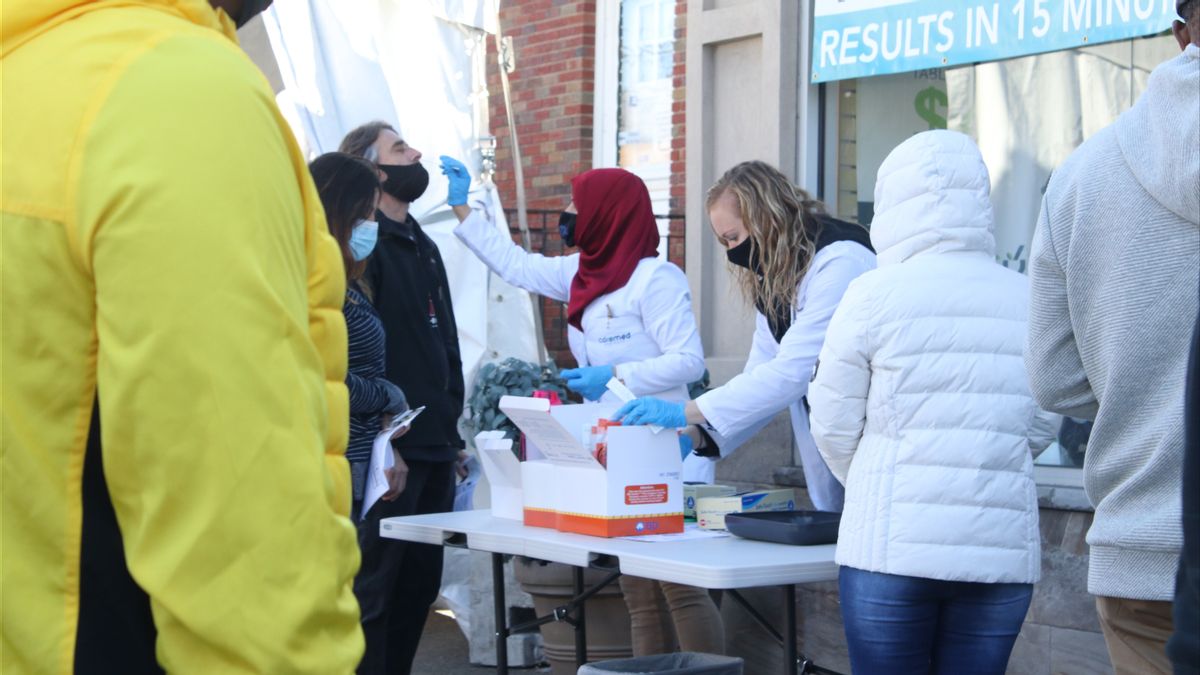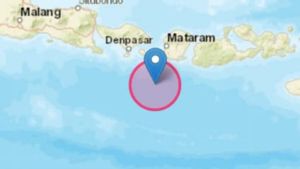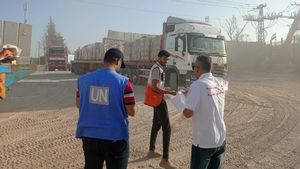
JAKARTA - The COVID-19 pandemic in Indonesia, which was first announced on March 2, 2020, is even a year tomorrow. Various methods of handling have been carried out by the government until rolling out a vaccination program.
Until yesterday, the cumulative number of positive COVID-19 cases in Indonesia reached 1.334.634 cases, 155.765 people were treated, 1.142.703 people recovered and 36.166 people died.
At the end of last year, experts from the World Health Organization (WHO) said the world must learn to live with COVID-19 as if it was destiny to make it endemic like other flu variants, even though there was a COVID-19 vaccine.
"The world expects herd immunity, which will somehow decrease if enough people are immune", said Professor David Heymann, chairman of the WHO's strategic and technical advisory group on the dangers of infection, reported The Guardian.
However, Heymann, who is also an epidemiologist at the London School of Hygiene and Tropical Medicine, says the concept of herd immunity has been misunderstood.
"It appears that SARS-CoV-2 (COVID-19) is destined to be endemic, like the other four human coronaviruses, and will continue to mutate as it multiplies in human cells, especially in areas with more intense reception", he explained.
"Fortunately, we have the tools to save lives, and this combined with good public health will allow us to learn to live with COVID-19", he explained.
Meanwhile, the head of the WHO emergency program, Dr. Mike Ryan, said the possible scenario was that the virus could become an endemic virus but with a very low threat level, in line with the effectiveness of the global vaccination program.
"It remains to be seen how well the vaccine is used, how close we are to reaching a level of coverage that will allow us to have the opportunity to do elimination", said Ryan.
"The existence of vaccines, even with high efficacy, is not a guarantee for eradicating or eradicating infectious diseases. That is a very high standard for us to pass", he added
For this reason, continued Ryan, the first goal of the COVID-19 vaccine is to save lives and protect the vulnerable, only then to see the potential to eliminate or eradicate this virus. However, at the same time, he also warned that this pandemic was not necessarily the biggest.
"This pandemic is very severe, affecting every corner of the planet, but it is not necessarily the biggest one. This is a wake-up call. We are now learning, how to do things better: science, logistics, training, and governance, how to communicate better", he snapped.
Meanwhile, WHO Chief scientist Dr. Soumya Swaminathan on the same occasion said, even though vaccinations have been made, the implementation of health protocols such as social distancing must still be considered.
He said the first role of the vaccine was to prevent symptomatic illness, serious illness, and death. However, whether a vaccine will also reduce the number of infections or prevent people from passing on the virus remains to be seen.
"I don't believe we have evidence on any vaccines to be sure, vaccines will prevent people from actually getting the infection and therefore transmitting it. So I think we need to assume that people who have been vaccinated also need to take the same precautions", she explained.
The English, Chinese, Japanese, Arabic, and French versions are automatically generated by the AI. So there may still be inaccuracies in translating, please always see Indonesian as our main language. (system supported by DigitalSiber.id)












